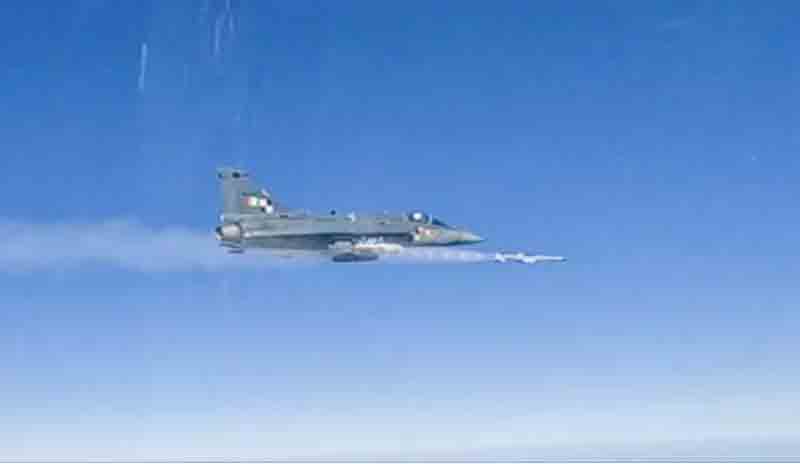U.S. President Donald Trump announced that he plans to discuss the resolution of the Ukraine conflict with Russia’s Vladimir Putin on Tuesday, with potential territorial concessions from Kyiv and the management of the Zaporizhzhia nuclear power plant expected to be key topics.
“We aim to see if we can bring this war to a conclusion,” Trump stated to reporters aboard Air Force One while traveling from Florida to the Washington area. “There’s a possibility we can achieve this, and I believe we have a strong chance.”
“I will be in conversation with President Putin on Tuesday. Significant progress has been made over the weekend,” he added.
Trump is seeking Putin’s backing for a 30-day ceasefire proposal that Ukraine accepted the previous week, even as both sides engaged in intense aerial bombardments early Monday, and Russia appeared to be advancing towards dislodging Ukrainian forces from their established position in the western Russian region of Kursk.
When asked about the concessions being discussed in the ceasefire talks, Trump replied, “We will discuss land. We will discuss power plants… We are already in talks about dividing certain assets.”
While he did not provide specifics, it is likely he was referencing the Zaporizhzhia facility, the largest nuclear power plant in Europe, which is currently under Russian occupation. Both Russia and Ukraine have accused each other of endangering the plant’s safety through their military actions.
Kremlin spokesperson Dmitry Peskov confirmed on Monday that Putin would have a phone conversation with Trump but refrained from commenting on Trump’s statements regarding land and power plants.
The Kremlin indicated on Friday that Putin had communicated with Trump about the ceasefire proposal through U.S. envoy Steve Witkoff, who had discussions in Moscow, expressing “cautious optimism” about the possibility of reaching an agreement to end the three-year conflict.
In separate appearances on U.S. television shows on Sunday, Witkoff, Secretary of State Marco Rubio, and Trump’s National Security Adviser, Mike Waltz, highlighted that significant obstacles remain before Russia would agree to a ceasefire, let alone a comprehensive peace settlement to the war.
When asked on ABC if the U.S. would consider a peace agreement allowing Russia to retain the Ukrainian territory it has occupied, Waltz responded, “We must evaluate whether this aligns with our national interests and if it is a feasible option. Are we prepared to remove every Russian presence from Ukrainian land?”
He emphasized the importance of discussing not only moral considerations but also the practical realities on the ground, warning that failing to reach compromises on territorial and other issues could lead to “endless warfare” or even a potential World War Three.
‘IRONCLAD’ GUARANTEES
Ukrainian President Volodymyr Zelenskiy expressed optimism about the possibility of ending the conflict after Kyiv agreed to a U.S. proposal for a 30-day temporary ceasefire. Nevertheless, Zelenskiy has firmly maintained that his country’s sovereignty is non-negotiable and that Russia must withdraw from the territories it has occupied. Since seizing Crimea in 2014, Russia has also taken control of significant portions of four eastern Ukrainian regions following its invasion in 2022.
Zelenskiy has not publicly addressed Waltz’s comments. Meanwhile, Russian Deputy Foreign Minister Alexander Grushko stated in an interview with the Russian media outlet Izvestia that Russia will demand “ironclad” guarantees in any peace agreement, specifically that NATO countries exclude Ukraine from membership and that Ukraine remain neutral. Grushko’s remarks, published on Monday, did not mention the ceasefire proposal.
President Putin claims that his actions in Ukraine are intended to safeguard Russia’s national security against what he describes as a threatening and aggressive West, particularly in light of NATO’s expansion eastward. Conversely, Ukraine and its Western allies assert that Russia is conducting an unprovoked war of aggression and engaging in an imperialistic land grab.
Moscow has insisted that Ukraine abandon its aspirations for NATO membership, that Russia retain control over all territories it has seized in Ukraine, and that the size of the Ukrainian military be restricted. Additionally, Russia seeks a reduction in Western sanctions and the holding of a presidential election in Ukraine, which Kyiv argues is premature given the current martial law situation.
Kaja Kallas, the European Union’s foreign policy chief, stated on Monday that the conditions set by Russia for a ceasefire indicate that Moscow is not genuinely interested in achieving peace.
Finland’s Foreign Minister Elina Valtonen emphasized that the responsibility for making concessions lies with Russia, as the aggressor, rather than Ukraine, to avoid undermining international law.
British Prime Minister Keir Starmer mentioned on Monday that a “significant number” of countries, including Britain and France, are prepared to deploy peacekeeping forces to Ukraine if a peace agreement with Russia is reached. Defence leaders are scheduled to meet this week to finalize these plans.
Russia has dismissed the idea of peacekeepers being deployed until the conflict concludes. Grushko from Russia stated, “If they are present, it implies their involvement in the conflict zone, which would have implications for these forces as participants in the conflict.” He added, “We can discuss unarmed observers or a civilian mission to oversee specific aspects of the agreement, but for now, it remains mere rhetoric.”
Discover more from Defence Talks | Defense News Hub, Military Updates, Security Insights
Subscribe to get the latest posts sent to your email.





